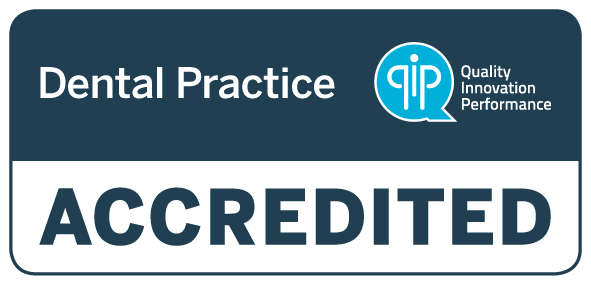Temporomandibular Joint (TMJ) disorder, often referred to as TMD, is a condition that affects the jaw joint and surrounding muscles, causing pain and discomfort. The temporomandibular joint plays a vital role in daily activities such as eating, speaking, and yawning. When this joint is affected by dysfunction, it may lead to severe symptoms that impact a person’s quality of life. In this comprehensive guide, we’ll explore TMJ disorder symptoms, causes, diagnosis, and various treatment options available to help manage this condition effectively.
Understanding TMJ Disorder and Its Impact on Daily Life
The temporomandibular joint connects your lower jaw (mandible) to the temporal bones of your skull. This joint is responsible for allowing your jaw to move up and down and side to side, enabling you to talk, chew, and yawn. TMJ disorder occurs when this joint becomes inflamed or damaged, causing pain and restricting jaw movement.
Living with TMJ disorder can be challenging, as it affects essential daily functions. Simple tasks like eating or speaking can become painful, and in severe cases, the jaw may lock, making it difficult to open or close the mouth. Additionally, TMJ disorder may also impact mental well-being, as chronic pain often leads to stress, anxiety, and sleep disturbances.
What Is TMJ Disorder?
TMJ disorder is a condition that affects the temporomandibular joint and the muscles controlling jaw movement. The disorder can manifest in different forms, ranging from mild discomfort to debilitating pain. It is often confused with general jaw pain, but TMJ disorder specifically refers to dysfunction within the joint itself or the muscles surrounding it.
The term TMJ refers to the joint, while TMD (temporomandibular dysfunction) encompasses a range of disorders affecting this joint. Patients may experience one or more of the following issues:
- Muscle pain around the jaw
- Internal derangement of the joint (e.g., displaced disc)
- Degenerative joint disease (e.g., arthritis affecting the TMJ)
TMJ disorders are more common than most people think. According to research, approximately 10 million people in the U.S. are affected by some form of TMJ disorder, with women being more likely to experience it than men.
Common Symptoms of TMJ Disorder
The symptoms of TMJ disorder can vary from person to person, depending on the severity of the condition. Here are some of the most common symptoms:
- Jaw Pain or Tenderness: This is one of the hallmark symptoms of TMJ disorder. Pain can be localised in the jaw or radiate to the face, neck, and shoulders.
- Clicking or Popping Sounds: Many individuals experience a clicking or popping sound when opening or closing their mouths.
- Difficulty Chewing: TMJ dysfunction can make it painful to chew, particularly harder foods.
- Locking of the Jaw Joint: In some cases, the jaw may lock in an open or closed position, making it difficult to move.
- Headaches or Migraines: Chronic TMJ issues can trigger tension headaches or migraines.
- Ear Pain or Tinnitus: Some patients experience earaches or ringing in the ears, which can be mistaken for an ear infection.
- Facial Swelling: TMJ disorder may cause swelling on one side of the face in some cases.
These symptoms may worsen over time if left untreated, making it essential to seek professional advice if you experience any of the above.
Causes and Risk Factors of TMJ Disorder
Several factors can contribute to TMJ disorder, ranging from physical injuries to genetic predisposition. Understanding these causes can help in preventing the condition or managing flare-ups.
Jaw Injuries
Trauma to the jaw from accidents, sports injuries, or falls can cause damage to the temporomandibular joint. Even mild injuries can have long-term effects on joint function.
Teeth Grinding (Bruxism)
Bruxism, or involuntary teeth grinding, is a significant contributor to TMJ disorder. Grinding puts excessive pressure on the jaw joint, leading to inflammation, pain, and joint dysfunction.
Arthritis in the Jaw
Both osteoarthritis and rheumatoid arthritis can affect the TMJ. Arthritis can wear down the joint’s cartilage, leading to pain, stiffness, and limited jaw movement.
Stress and Anxiety
Stress often causes individuals to clench their jaws or grind their teeth, leading to TMJ issues. Prolonged tension in the jaw muscles may result in inflammation and pain.
Poor Posture
Posture plays a crucial role in jaw alignment. Poor posture, particularly in the neck and shoulders, can strain the jaw joint, leading to TMJ dysfunction.
Genetic Predisposition
Some individuals are genetically predisposed to TMJ disorders. Certain jaw shapes, bite patterns, or connective tissue disorders may increase the risk of developing TMJ dysfunction.
Diagnosis of TMJ Disorder
Diagnosing TMJ disorder involves a comprehensive assessment by a healthcare professional, typically a dentist or oral health professional.
1. Physical Examination
The dentist will examine your jaw for signs of tenderness, swelling, and abnormal movement. They may also listen for clicking or popping sounds.
2. Symptom Review
Your dentist will ask about your symptoms, their duration, and any factors that may worsen or relieve them.
3. Imaging Tests
Advanced imaging tests such as X-rays, MRIs, or CT scans may be used to get a clearer view of the joint structure and identify any abnormalities.
Treatment Options for TMJ Disorder
The right treatment plan depends on the severity of the disorder and the underlying cause. There are various options, from simple lifestyle changes to advanced medical interventions.
Home Remedies and Lifestyle Changes
- TMJ Exercises: Gentle exercises may help improve jaw mobility and reduce pain.
- Diet Modifications: Soft foods are easier on the jaw and may help reduce strain. Avoid chewy or hard foods that may aggravate symptoms.
- Stress Management: Techniques like meditation and yoga may help reduce jaw clenching caused by stress.
- Hot/Cold Therapy: Applying heat or ice packs to the jaw may alleviate inflammation and pain.
Medical Treatments
- Night Guards for TMJ: Custom-fitted night guards prevent teeth grinding, which reduces pressure on the TMJ.
- Medications: Muscle relaxants, anti-inflammatory drugs, and pain relievers help manage symptoms.
- Physical Therapy: Physical therapists might provide exercises or manual therapy to improve jaw function.
Advanced Treatments
- Botox for TMJ Pain: Botox injections may help relax the jaw muscles, reducing tension and preventing teeth grinding.
- Orthodontic Treatments: Correcting misaligned teeth or bite issues may also alleviate TMJ symptoms.
- Surgery: In rare cases, surgical intervention may be necessary to repair or replace the joint if other treatments fail.
Preventing TMJ Disorder and Managing Flare-Ups
Prevention is key to managing TMJ disorder. Here are some tips to reduce the risk of developing or worsening the condition:
- Maintain Good Posture: Proper alignment of the neck and shoulders may also contribute to reducing strain on the jaw.
- Use Mouthguards: Protect your jaw joint from teeth grinding during sleep.
- Manage Stress: Incorporate relaxation techniques into your daily routine to prevent jaw clenching.
- Avoid Overuse: Limit excessive jaw movements like chewing gum or biting your nails.
When to See a Doctor for TMJ Disorder
Seek medical advice if you experience any of the following symptoms:
- Persistent jaw pain
- Limited jaw movement or locking
- Clicking or popping sounds that interfere with normal function
- Severe headaches or earaches
A dentist can do a thorough evaluation and recommend a suitable treatment plan.
Conclusion: Taking Control of TMJ Disorder
TMJ disorder may significantly impact your quality of life, but with the right approach, it’s manageable. Whether through lifestyle changes or medical treatments, managing TMJ pain is possible. At Family Dental Practice, we offer personalised care to help you achieve lasting relief. If you’re experiencing jaw pain or suspect TMJ disorder, schedule an appointment with us today.
FAQs
What Are the Symptoms of TMJ Disorder?
Common symptoms include jaw pain, clicking sounds, headaches, and ear pain.
What Causes TMJ Disorder?
Causes range from injuries and bruxism to arthritis and stress.
How Is TMJ Disorder Diagnosed?
Through a combination of physical exams, symptom review, and imaging tests.
Can TMJ Disorder Be Treated at Home?
Yes, with exercises, stress management, and dietary changes.
What Are the Medical Treatments for TMJ Disorder?
Night guards, medications, Botox, and physical therapy.
Is TMJ Disorder Related to Stress?
Yes, stress may cause jaw clenching, contributing to TMJ pain.
Can Botox Help with TMJ Disorder?
Botox may help relax the jaw muscles and reduce TMJ-related pain.
How Can I Prevent TMJ Flare-Ups?
Maintain good posture, use mouthguards, manage stress, and avoid excessive jaw movements.


